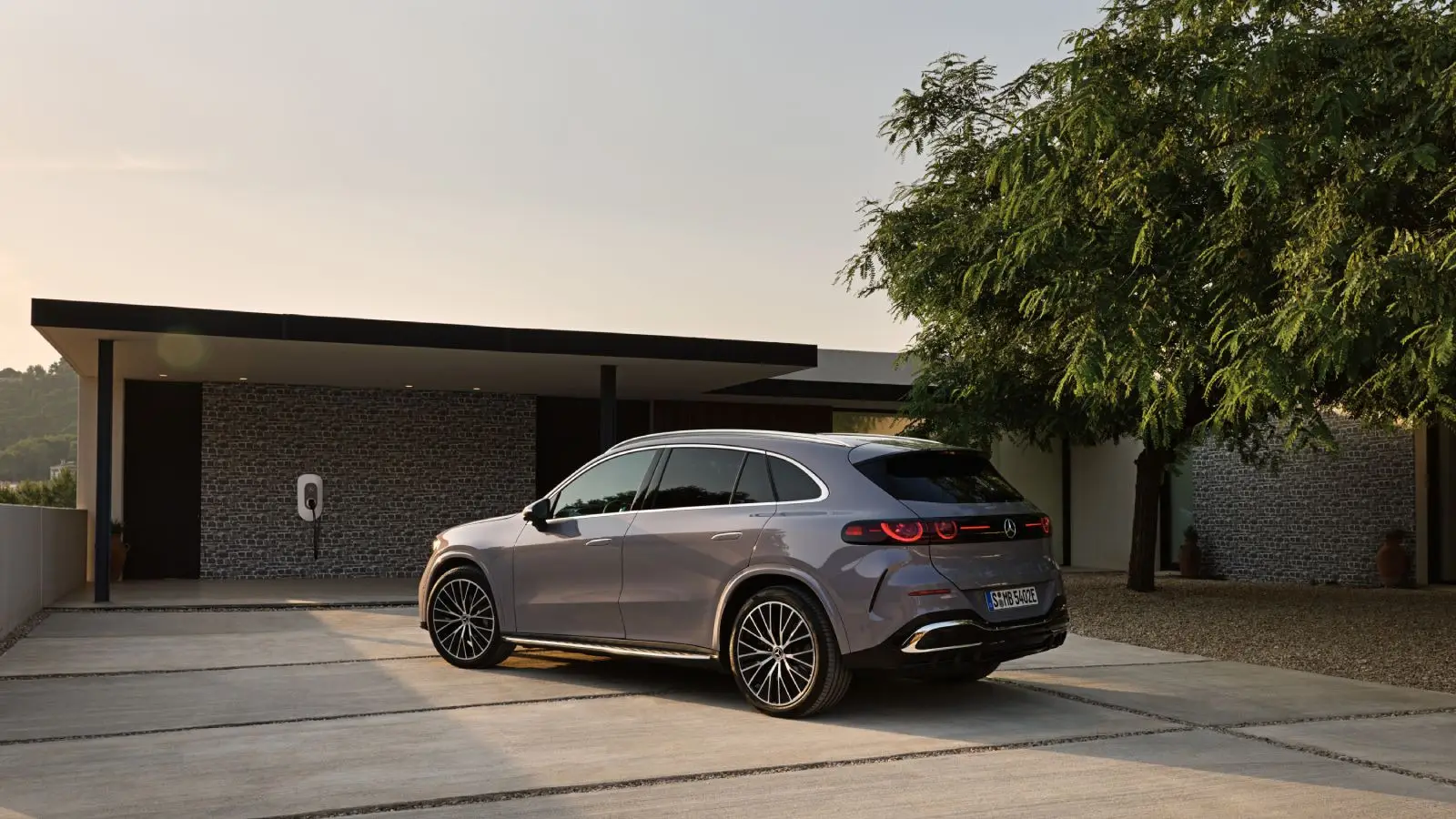Mercedes-Benz bidirectional charging debut with new GLC

Mercedes-Benz will launch bidirectional charging in 2026 with the new electric GLC, enabling vehicles to feed energy back into homes and the grid.
At IAA Mobility 2025 in Munich, Mercedes-Benz unveiled a new vision for the role of electric vehicles in the energy transition. Beginning in 2026, the brand will introduce bidirectional charging, allowing its cars not only to draw electricity but also to feed it back into homes or the public grid. The fully electric GLC will debut the system, followed by the CLA and other models. The rollout will start in Germany, France and the United Kingdom, with further markets to follow.
At the heart of this initiative is MB.CHARGE Home, a digital ecosystem that links the vehicle, a compatible wallbox, and access to the energy market. Mercedes-Benz has partnered with The Mobility House, which provides the green energy tariff and market integration. The company has already proven its expertise in France, where similar projects are available for private users. For customers, the transition is seamless: advice, installation and onboarding all come from a single source.
The system offers two levels of service. MB.CHARGE Home Intelligent manages charging automatically, selecting low-cost times such as at night or during periods of high renewable generation. MB.CHARGE Home Pro Intelligent adds bidirectional capability, enabling vehicles to feed stored energy back into the grid or the home during peak prices. This turns the car into an active energy source and helps reduce household electricity costs. All processes are controlled through a smartphone app, removing the technical complexity from the user.
Independent studies show that smart charging can deliver double-digit annual savings, while bidirectional participation adds further benefits. In the UK, commercial bundles are already on offer that effectively allow drivers to charge at home for free by trading energy on the market. France has launched similar schemes, while in Germany regulatory reforms are still being discussed to enable full vehicle-to-grid participation.
For Mercedes-Benz, the move is more than a technological milestone. It is also a statement of intent: electric vehicles are becoming decentralized storage units that stabilize the grid, absorb surplus wind and solar power, and make renewable energy more viable. While regulatory frameworks remain a work in progress, the direction is clear — the car is no longer just a means of transport, but part of tomorrow’s energy infrastructure.
Mark Havelin
2025, Sep 08 23:43


